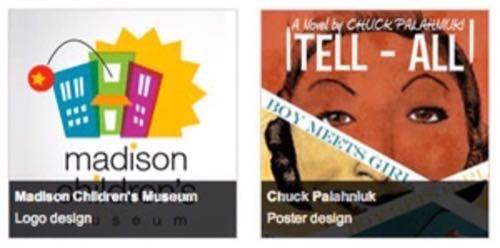Though it draws divided opinions from the design community, crowdsourced creative services market crowdSPRING has maintained a sizable user base of designers and writers. The site allows users to submit entries for sponsored competitions of creative tasks, such as logo and website design, or copywriting. Today the site announced the passing of a significant milestone in its two-year history as over one million user entries have been submitted to the site.

Since opening in May 2008, crowdSPRING, home to roughly 65,000 users from 175 countries, has hosted over 12,000 project contests, averaging over 116 entries per project, the company says. Small businesses and organizations can log into the site and submit a proposal for the creative work they need done. They can ask for a logo design, a web page design (with or without code writing), business card and letterhead design, or even written tasks like site copy or just ideas for names of products.

The project managers choose a reward price for their copmany’s project, the minimum being $200, and users submit their entries for consideration. The managers can then interact with the users, offering suggestions for revisions, and eventually hand pick a winner to receive the reward in return for the already completed work.
Large corporations have even joined in the action, offering large rewards for projects like designing a new pasta shape for Barilla, or creating a new iteration of TiVo’s logo. But reactions to crowdSPRING’s methods have not been all smiles.
Many take offense to the fact that users are asked to submit fully completed creative works to the site without any guarantee of compensation – a practice some refer to as “spec work.” We investigated this issue back in January, and brought it up again in March after the site launched the addition of writing services and some were concerned about intellectual property.

Businesses that are concerned with the issues some raise about crowdSPRING show be aware of the alternatives available for sourcing creative services on the web. TechStars’ Andrew Hyde, who is outspokenly against spec work and crowdSPRING, launched his own platform, Pick.im, which provides designers and developers (among others) with a place to host their portfolios and find work. Other sites, like Forrst, provide an exclusive community for designers and developers to interact and share work and get feedback.
Regardless of these other networks and the anti spec work sentiments, crowdSPRING has continued to grow as one million entries attest to the site’s success.

















